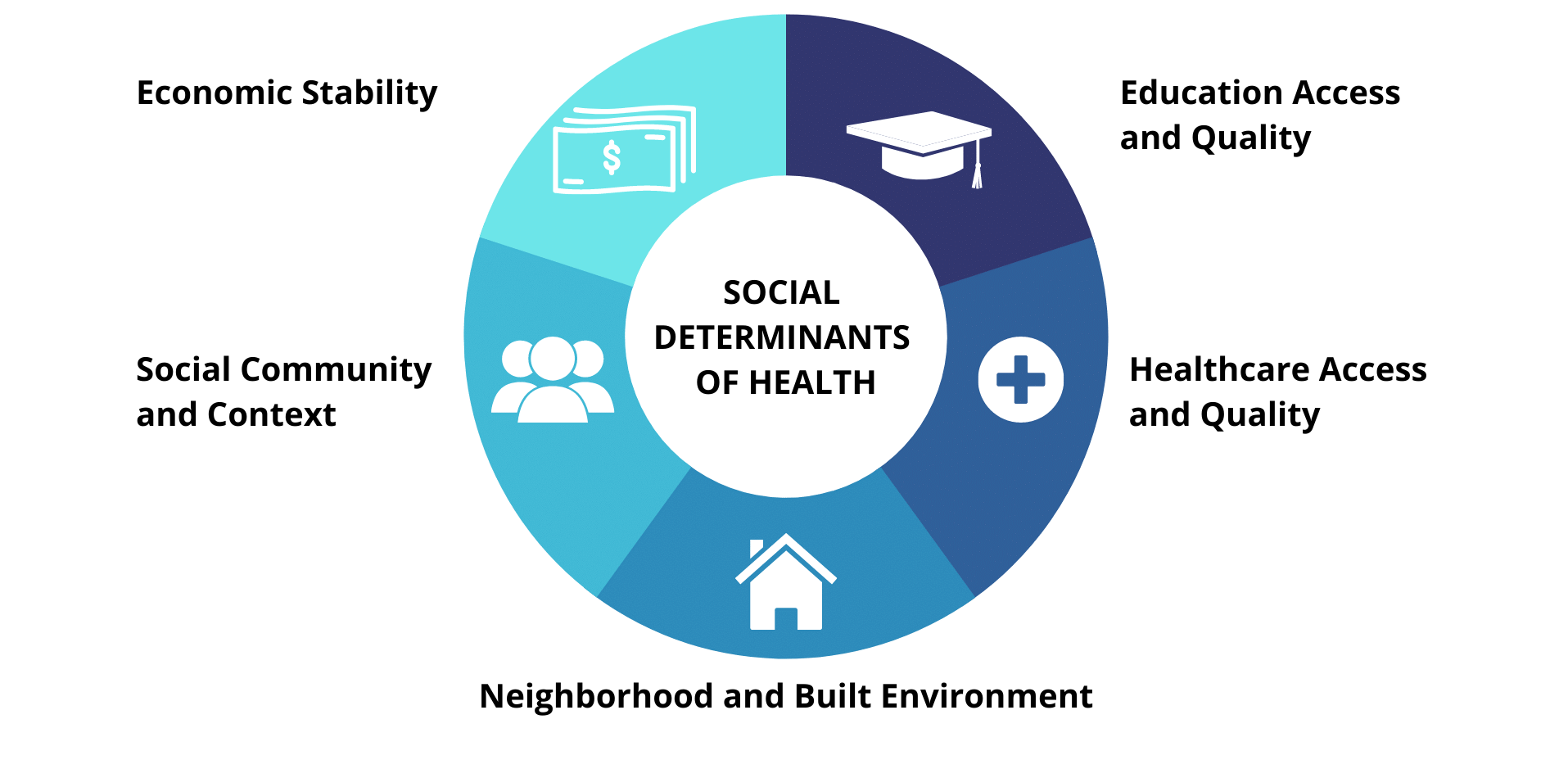Leveraging Community Health Analytics to Help State and Local Agencies Capture and Understand Disparate Health Data
Leveraging Community Health Analytics to Help State and Local Agencies Capture and Understand Disparate Health Data
Medical care accounts for only 10% to 20% of the issues that contribute to people’s health outcomes, according to an oft-cited study. The other 80% to 90% of factors are “social determinants” involving where people live, learn, work and play. These include education access, economic stability, social and community context, neighborhood and environment.
Numerous state and local government agencies are focused on improving health outcomes for constituents. But if the preponderance of issues driving those outcomes aren’t directly related to healthcare delivery, then agencies need to look beyond healthcare services and data to achieve their missions.

Of course, agencies have opportunities to gather a rich spectrum of economic, social and environmental data from a broad range of sources. That data contains a wealth of hidden information that could help them promote better health and wellbeing.
Yet capturing, sharing and making sense of that data can be challenging. For many organizations, the promise of using social-determinant data to advance their missions has proved elusive.
The good news is that technologies and strategies exist to enable effective community health analytics (CHA). And by leveraging CHA, agencies can capture, share and understand disparate health-related data – and achieve insights that tangibly benefit their constituencies.
A Platform for Community Health Insights
Many agencies already recognize the value of factoring economic and social concerns into their efforts to promote better health outcomes. But initiatives to achieve that goal have been hampered by challenges and limitations.
In some cases, agencies have ended up using data from one community as a proxy for another – an imprecise approach that can lead to wrong assumptions. In others, they’ve lacked an effective means of de-identifying individual data, so they’ve been unable to use that data to uncover unrecognized trends and risk factors. And in others, the technology they implemented proved so complex that only highly trained technical staff were able to use it.
The solution is an effective platform for community health analytics. A cloud-based approach enables easy access to data while allowing agencies to avoid the burden of managing the underlying hardware and data storage. CHA enables agencies to achieve five objectives:
- Integrate data from disparate sources.
- Securely share that data across authorized organizations.
- De-identify, or anonymize, data for analysis.
- Enable user-friendly data analytics and visualization for new insights.
- Help drive data-driven decisions that benefit the community.
Effective CHA covers a range of public health-related data, including communicable- and chronic-disease surveillance, social services, healthcare consumption, environmental monitoring, criminal justice and more. It integrates with dynamic data sources to automatically load current data and aggregate it by geography. Preloaded national public health datasets and precomputed benchmarks can add context.
The platform should allow for various levels of access. For instance, users could be limited to only certain data elements or only to anonymized data aggregated by geography with small record number suppression rules. User-friendly interfaces, navigation and visualizations should enable nontechnical users to quickly and easily understand comparisons and trends.
A CHA platform should be secure and have public-facing components so that agency stakeholders, external researchers and community residents have access to the data that benefits them.
CHA in New York City
CHA is delivering tangible benefits to multiple state and local agencies, such as the New York City Department of Health and Mental Hygiene (DOHMH). DOHMH maintains a wealth of data that informs policy, guides programs and promotes health equity. In the past, its system for disseminating this data suffered from organizational, design and technical issues that made it difficult to use.
Voyatek worked with DOHMH to create EpiQuery, a dynamic health information tool based on the Voyatek CHA platform. EpiQuery provides web-based, on-demand access to health data, self-service analytics and user-friendly visualizations. The resource consolidations 10 million records from vital-records datasets, disease surveillance, surveys and more. It’s used by government employees, researchers and the public. At the start of the COVID-19 pandemic, for instance, EpiQuery signaled the spread of a flu-like illness in the first two weeks of March 2020.
Benefiting the Broader Community
A wide range of constituencies can benefit from CHA. Public servants can leverage index values and risk scores developed through academic collaborations and machine learning to assess health risks and target services. State and local governments can develop outcome-based policies, implement cross-program collaborations and deploy resources to tackle key issues.
In addition, researchers can access community health data for additional analysis. Nonprofits can one-stop-shop for data that informs strategic planning, grant applications, community collaborations and mandated reporting. Business owners can access guidance and prepare for community health trends.
Just as important, residents can understand drivers affecting health outcomes, make informed health decisions and connect with health services.
The influence of social determinants on public health calls for coordinated approaches improving community wellbeing. An effective platform for community health analytics gets the right data into the hands of state organizations, local agencies and other stakeholders, including the public. The result is more informed decision-making, collaboration across and beyond government programs, targeted health policies and programs, and better health outcomes.

